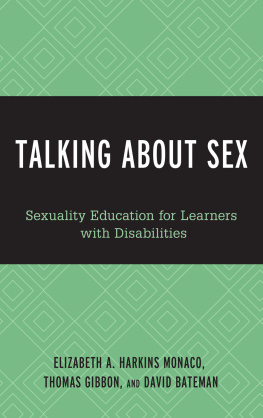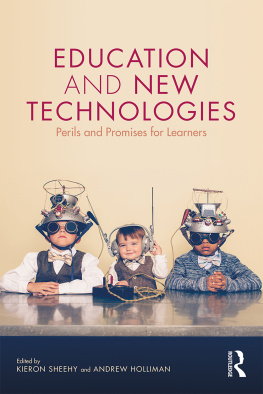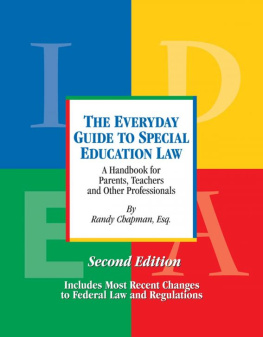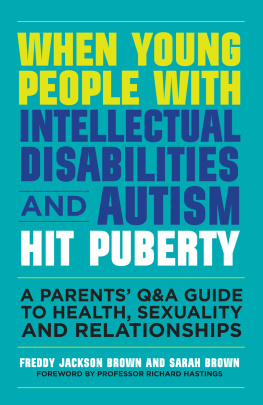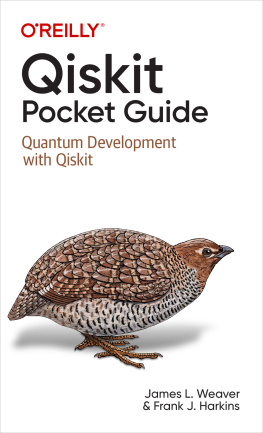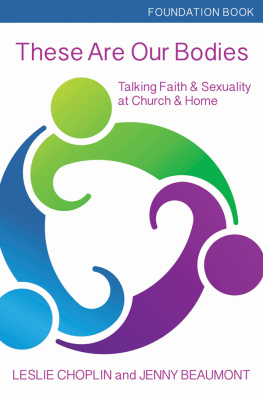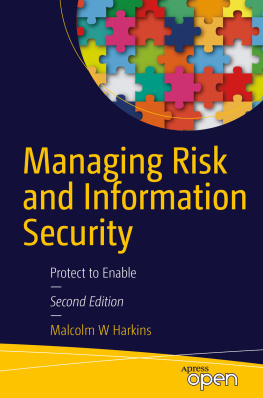Elizabeth A. Harkins Monaco - Talking About Sex: Sexuality Education for Learners with Disabilities
Here you can read online Elizabeth A. Harkins Monaco - Talking About Sex: Sexuality Education for Learners with Disabilities full text of the book (entire story) in english for free. Download pdf and epub, get meaning, cover and reviews about this ebook. year: 2018, publisher: Rowman & Littlefield Publishers, genre: Home and family. Description of the work, (preface) as well as reviews are available. Best literature library LitArk.com created for fans of good reading and offers a wide selection of genres:
Romance novel
Science fiction
Adventure
Detective
Science
History
Home and family
Prose
Art
Politics
Computer
Non-fiction
Religion
Business
Children
Humor
Choose a favorite category and find really read worthwhile books. Enjoy immersion in the world of imagination, feel the emotions of the characters or learn something new for yourself, make an fascinating discovery.
- Book:Talking About Sex: Sexuality Education for Learners with Disabilities
- Author:
- Publisher:Rowman & Littlefield Publishers
- Genre:
- Year:2018
- Rating:4 / 5
- Favourites:Add to favourites
- Your mark:
- 80
- 1
- 2
- 3
- 4
- 5
Talking About Sex: Sexuality Education for Learners with Disabilities: summary, description and annotation
We offer to read an annotation, description, summary or preface (depends on what the author of the book "Talking About Sex: Sexuality Education for Learners with Disabilities" wrote himself). If you haven't found the necessary information about the book — write in the comments, we will try to find it.
Talking About Sex: Sexuality Education for Learners with Disabilities — read online for free the complete book (whole text) full work
Below is the text of the book, divided by pages. System saving the place of the last page read, allows you to conveniently read the book "Talking About Sex: Sexuality Education for Learners with Disabilities" online for free, without having to search again every time where you left off. Put a bookmark, and you can go to the page where you finished reading at any time.
Font size:
Interval:
Bookmark:

Published by Rowman & Littlefield
A wholly owned subsidiary of The Rowman & Littlefield Publishing Group, Inc.
4501 Forbes Boulevard, Suite 200, Lanham, Maryland 20706
www.rowman.com
Unit A, Whitacre Mews, 2634 Stannary Street, London SE11 4AB
Copyright 2018 by Elizabeth A. Harkins Monaco, Thomas Gibbon, David Bateman
All rights reserved. No part of this book may be reproduced in any form or by any electronic or mechanical means, including information storage and retrieval systems, without written permission from the publisher, except by a reviewer who may quote passages in a review.
British Library Cataloguing in Publication Information Available
Library of Congress Cataloging-in-Publication Data
Names: Monaco, Elizabeth A. Harkins, author. | Bateman, David (David F.), author.
Title: Talking about sex : sexuality education for learners with disabilities / by Elizabeth A. Harkins Monaco, Thomas Gibbons, and David Bateman.
Description: Lanham: Rowman & Littlefield, 2018 | Includes bibliographical references.
Identifiers: LCCN 2017060349 (print) | LCCN 2018002213 (ebook) | ISBN 9781475839852 (electronic) | ISBN 9781475839838 (cloth : alk. paper) | ISBN 9781475839845 (pbk. : alk. paper)
Subjects: LCSH: Sex instruction for people with mental disabilities. | Sex instruction for people with disabilities. | People with disabilitiesSexual behavior.
Classification: LCC HQ54 (ebook) | LCC HQ54 .M656 2018 (print) | DDC 306.7087dc23
LC record available at https://lccn.loc.gov/2017060349
 The paper used in this publication meets the minimum requirements of American National Standard for Information SciencesPermanence of Paper for Printed Library Materials, ANSI/NISO Z39.481992.
The paper used in this publication meets the minimum requirements of American National Standard for Information SciencesPermanence of Paper for Printed Library Materials, ANSI/NISO Z39.481992.
Printed in the United States of America
In a span of just a few years, adolescents transition dramatically in almost all realms of their lives: they mature physically; their ability to analyze and reason develops; and their social relationships are redefined. Key social and emotional milestones during adolescence are often directly related to the abilities to initiate and maintain intimate relationships (Perkins and Borden 2003), maintain physically maturing bodies, and manage personal sexuality (Murphy and Elias 2006).
Most adolescents with intellectual or developmental disabilities (IDDs) and autism spectrum disorders (ASDs) experience these milestones alongside their neurotypical peers, but they have particular difficulty expressing sexuality in satisfying ways. This population has historically faced issues such as limited intimate relationships, low self-esteem, increased social isolation, deregulated emotional maintenance (Sabornie, Thomas, and Coffman 1989), reduced sexual functioning, and limited sexual health (Blum 1997).
Finding ways to express sexuality is a key part of functional development, and a formal education in sexuality is especially critical for all children but is often neglected for students with IDDs and ASDs (Neufeld et al. 2002). Appropriate sexual knowledge assists not only in achieving personal fulfillment but also in protection from mistreatment, abuse, unplanned pregnancies, or sexually transmitted diseases (STDs) (Murphy and Elias 2006). It also works to help solve problems of loneliness and problems with self-esteem.
Developmentally appropriate sexual knowledge assists not only in achieving personal fulfillment but also in protection from mistreatment, abuse, unplanned pregnancies, or STDs (Murphy and Elias 2006). Additionally, if all stakeholders share the responsibilities for appropriate sexual functioning, students are more apt to adhere to appropriate expectations while maintaining personal safety (Murphy and Elias 2006).
This book will address this but also much more. Issues of physical and cognitive development will be discussed, including appropriate sexual development/urges and brain development, and innate similarities and differences of sexuality that could occur between people with IDs and ASDs, including the complexities of physical disabilities. The authors will also consider special considerations for group homes and recreational facilities and specifically focus on concepts of ethics and models of consent (medical, legal, social, and educational), as well as how to deal with uncertainty. Finally, the text will provide concrete resources for caregivers, parents, and educators who can be directly implemented or modified for use.
Any parent can tell you how hard it is to successfully get an adolescent to delay gratification. For example, think about adolescent requests for the latest phone or video game or their interest in hanging out unsupervised with friends or driving with other young drivers. Parents of children and young adults with disabilities face an even more challenging task. Having a disability does not diminish normal biological human development; adolescents with disabilities develop physically and have sexual desire.
Parents of children with disabilities wrestle with the hopes for their children to have as normal a life as possible while knowing that their children are more likely to be victims of sexual assault. Teaching children with disabilities to negotiate the complex interaction between their developing desires while providing skills for self-protection is particularly problematic if the children have impaired cognitive functioning, emotional instability, impulsivity, or authority aversion (Wissink et al. 2015).
Though this is a topic that many do not want to address, it is clearly of utmost importance. Educating individuals who are vulnerable is a societal interest and one that needs to be taken very seriously. Students with disabilities are at a heightened risk for sexual assault and abuse. Historical trends in our ideology and treatment of people with disabilities as those with fewer rights than other citizens contribute to current vulnerability. Ironically, the normalization movement, with its push for autonomy and self-determination for people with disabilities (PWD), may leave some more vulnerable to not receiving an appropriate education and potentially then suffer from abuse.
Blum, R. W. (1997). Sexual health contraceptive needs of adolescents with chronic conditions. Archives of Pediatrics and Adolescent Medicine, 151: 29097.
Murphy, N. A., & Elias, E. R. (2006). Sexuality of adolescents with developmental disabilities. Pediatrics, 118(1): 398403.
Neufeld, J. A., Klingbeil, F., Bryen, D. N., & Thomas, A. (2002). Adolescent sexualityand disability. Physical Medicine and Rehabilitation Clinics of North America, 13(4): 85773.
Perkins, D. F., & Borden, L. M. (2003). Positive behaviors, problem behaviors, and resiliency in adolescence. In R. M. Lerner, M. A. Easterbrooks, & J. Mistry (Eds.), Handbook of psychology: Volume. 6, Developmental psychology (37394). New York: Wiley.
Sabornie, E. J., Thomas, V., & Coffman, R. M. (1989). Assessment of social/affective measures to discriminate between BD and nonhandicapped early adolescents. Monograph in Behavior Disorders: Severe Behavior Disorders in Children and Youth, 12: 2132.
Wissink, I. B., van Vugt, E., Moonen, X., Stams, G. J., & Hendriks, J. (2015). Sexual abuse involving children with an intellectual disability (ID): A narrative review. Research in Developmental Disabilities, 36: 2035. doi:10.1016/j.ridd.2014.09.007 PMID:25310832
Font size:
Interval:
Bookmark:
Similar books «Talking About Sex: Sexuality Education for Learners with Disabilities»
Look at similar books to Talking About Sex: Sexuality Education for Learners with Disabilities. We have selected literature similar in name and meaning in the hope of providing readers with more options to find new, interesting, not yet read works.
Discussion, reviews of the book Talking About Sex: Sexuality Education for Learners with Disabilities and just readers' own opinions. Leave your comments, write what you think about the work, its meaning or the main characters. Specify what exactly you liked and what you didn't like, and why you think so.

